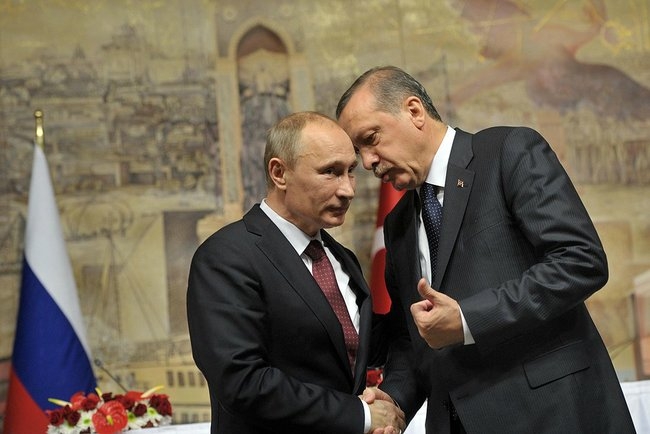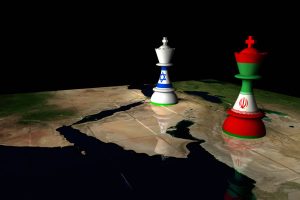Thirty-five Arab journalists have been fired since the beginning of April as a result of a campaign of intimidation and terrorism waged against them by Hamas and Hezbollah.
The journalists were working for the Saudi-owned pan-Arab Al-Arabiya television news channel, based in Dubai Media City in the United Arab Emirates. The network was previously rated by the BBC among the top pan-Arab stations.
But life for Al-Arabiya reporters has never been easy. Like most Arab journalists covering the Arab and Islamic countries, they too have long faced threats from various parties and governments.
That is the sad state of journalism in the Arab world: “If you’re not with us, then you must be against us and that is why we need to shut your mouth.” A journalist who does not agree to serve as a governmental mouthpiece is denounced as a “traitor.”
The absence of democracy and freedom of speech in most Arab and Islamic countries has forced many Arab journalists to relocate to the West. In the past four decades, some of the Arab world’s best journalists and writers moved to France and Britain, where they could work without fearing for their lives.
But in the Arab world, freedom of the media remains a far-fetched dream. There, if you are not threatened by the government, there is always someone else who will find a reason to target you.
The case of the Al-Arabiya journalists is yet another example of the dangers facing media representatives who do not toe the line or who dare to challenge a government or a terrorist group.
Earlier this week, Al-Arabiya announced that it was firing its eight workers in the Gaza Strip — three years after the Hamas government decided to shut the station’s offices there. The workers are Mohamed Jahjouh, Jamal Abu Nahel, Hanan al-Masri, Rula Elayan, Mahmdouh al-Sayed, Sha’ban Mimeh, Ala Zamou and Ahmed al-Razi.
In an email to the workers, the Al-Arabiya management wrote:
“We appreciate your work with us during the previous period. You were all an example of professional performance, but the time has come for the hard decision after we exhausted all attempts to reopen the offices, which were forcibly closed, as you know, by the party that controls the street in the Gaza Strip.”
Hamas shut the Gaza offices of Al-Arabiya in July 2013, under the pretext that the station had been broadcasting “incorrect news” about the situation in the Gaza Strip. In addition to the closure, Hamas also confiscated the equipment and furniture with an estimated value of $500,000, and prevented the employees from entering the offices.

Hamas shut the Gaza offices of Al-Arabiya in July 2013, under the pretext that the station had been broadcasting “incorrect news” about the situation in the Gaza Strip. (Image source: JN1 video screenshot) |
The closure of the Al-Arabiya offices in the Gaza Strip did not receive much attention from the international community and human rights organizations. Had the office been closed by Israel, of course, there would have been an international outcry, with journalists around the world screaming about Israeli “assaults on freedom of the media.”
Here is an unpleasant fact: Al-Arabiya, like many other Arab TV stations, has a bureau in Israel, and its reporters enjoy more freedom reporting out of Jerusalem and Tel Aviv than they do in the Arab world. Today, the only free and independent Arabic newspapers in the Middle East can be found inside Israel.
In the West Bank and Gaza Strip, the only newspapers available are those that serve as an organ for the Palestinian Authority (PA) and Hamas. Many Arab journalists feel unsafe working under the PA in the West Bank. For the PA and Hamas alike, criticism is a crime.
Just this week, for example, Palestinian Authority security officers arrested journalist Tareq Abu Zeid in Nablus after confiscating his personal computer and mobile phone. No reason was given for Abu Zeid’s arrest. He joins scores of other journalists and bloggers who have been arrested or interrogated by the PA in recent years.
Even Arab countries that once used to boast of being a base for free media, such as Lebanon, are no longer able to defend journalists from threats and violence.
Last month, Al-Arabiya also closed its offices in Beirut, citing “security concerns.” In a statement, the Saudi-owned station said that the decision to quit Beirut was taken “out of concern for the safety” of its 27 employees.
The decision is believed to be the direct result of threats by the Iranian-backed Hezbollah militia. Hezbollah is furious with Saudi Arabia and other Arab countries for their recent decision to label the Shiite militia as a terrorist group.
Al-Arabiya’s decision to close its bureau in Beirut came shortly after suspected Hezbollah thugs went on the rampage inside the offices of the Saudi-owned newspaper Asharq Al-Awsat, destroying equipment and furniture.
The attack came after the pan-Arab newspaper published a cartoon marking April Fool’s Day, which was deemed “offensive” to Lebanon and its flag. The message behind the cartoon was that Lebanon has become a failed state because of the growing power of Hezbollah and Iranian meddling in the internal affairs of the country — something that has prevented the election of a new Lebanese president.
The crackdown on Arab journalists and media outlets by Hamas, Hezbollah and many Arab governments (including the Palestinian Authority) is not only aimed at silencing critics, but also at hiding from the world what life is like under dictators and terrorists. In light of the fact that Al-Arabiya’s staff has been recently decimated, advocates of freedom of the media might wish to tune in.
Khaled Abu Toameh, an award-winning journalist is based in Jerusalem.





































